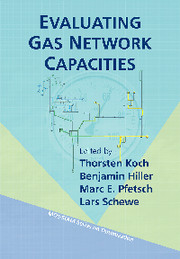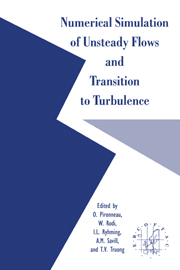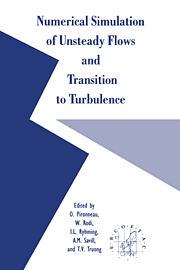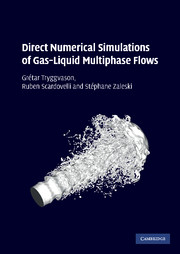Evaluating Gas Network Capacities
The question of whether a certain amount of gas can be transported through a pipeline network is the subject of this book. Although the question is relatively simple to state, it turns out to be difficult to answer when asked in relation to a meshed nationwide gas transportation network and when taking into account the technical details and discrete decisions, as well as regulations, contracts, and varying demands involved. As well as providing an introduction to gas transportation planning, this book discusses in detail several mathematical models that address gas transport within the context of its technical and regulatory framework. It also shows how to solve the models using sophisticated algorithms, and includes examples of large-scale applications of mathematical optimization to this real-world problem. Readers will find a glossary of terms, tables listing the physical and technical quantities and constants used throughout, and a reference list of gas business literature.
- Discusses the advantages and disadvantages of several models related to gas transport planning
- Demonstrates how to solve the models using sophisticated mathematical optimisation algorithms
- Includes examples of large-scale applications of mathematical optimization to this real-world industrial problem
Product details
May 2015Paperback
9781611973686
385 pages
255 × 178 × 23 mm
0.8kg
This item is not supplied by Cambridge University Press in your region. Please contact Soc for Industrial null Mathematics for availability.
Table of Contents
- Foreword
- Preface
- Part I. Fundamentals:
- 1. Introduction
- 2. Physical and technical fundamentals of gas networks
- 3. Regulatory rules for gas markets in Germany and other European countries
- 4. State of the art in evaluating gas network capacities
- Part II. Validation of Nominations:
- 5. Mathematical optimization for evaluating gas network capacities
- 6. The MILP relaxation approach
- 7. The specialized MINLP approach
- 8. The reduced NLP heuristic
- 9. An MPEC-based heuristic
- 10. The precise NLP model
- 11. What does 'feasible' mean?
- 12. Computational results for validation of nominations
- Part III. Verification of Booked Capacities:
- 13. Empirical observations and statistical analysis of gas demand data
- 14. Methods for verifying booked capacities
- 15. Perspectives
- Appendix: background on gas market regulation
- Acronyms
- Glossary
- Regulation and gas business literature
- Bibliography
- Index.








